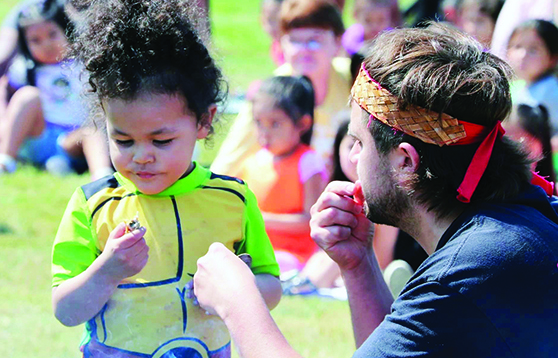
By Kalvin Valdillez, Tulalip News
“Long time ago, my grandparents and their grandparents, used to get all of our foods from the water – crabs, fish, and clams,” said Tulalip cultural bearer, Ray Fryberg. “We used to live in longhouses, and there were ways that we used to cook. We didn’t have frying pans, pots, and different things. This is the old way that we used to cook clams, this is called a clambake.”
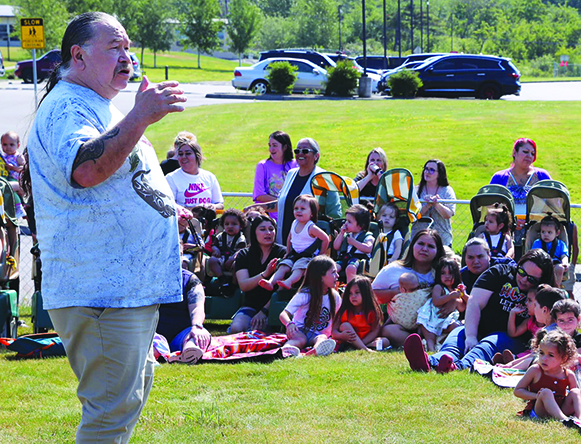
Smoke rose into the air from the Betty J. Taylor Early Learning Academy (TELA) parking lot on the morning of June 23. Tulalip tribal members, Thomas and Andy Williams, were hard at work tending to a smoldering cinder block pit at the small field that overlooks Tulalip bay.
At the center of the pit were hundreds of clams, tightly wrapped in foliage. And the aroma of a traditional meal, now a staple PNW appetizer, carried into the breeze over the campus of the academy.
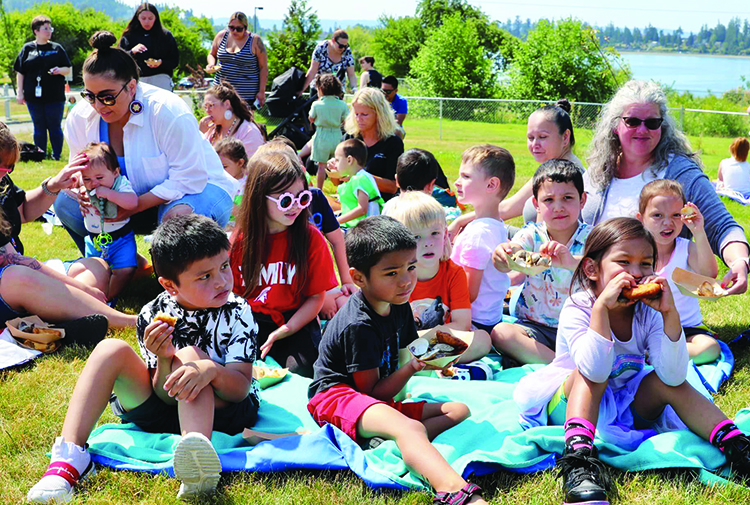
“Traditionally, our elders used to say when the tide goes out, the table is set,” explained TELA Director, Sheryl Fryberg. “That’s how we got our clams, our crab. To do this traditionally, this kind of clambake, we use skunk cabbage, thimbleberry leaves, and kelp so that it seals in the flavors. It’s so heartwarming that we have people who still remember the traditional ways and can pass it down. For our kids, who are birth to five, these are the most important teaching years of their lives. And we want to lay that foundation for them so wherever they go in life, they know who they are.”
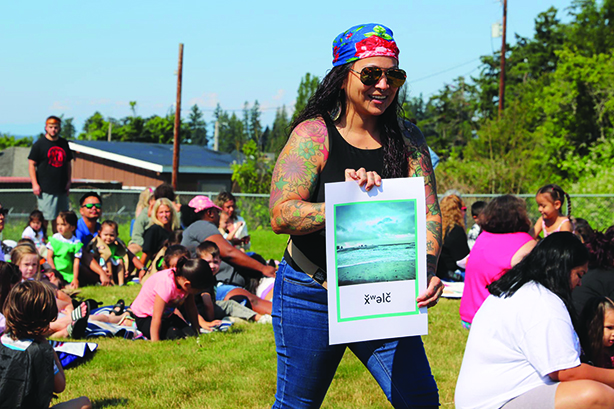
The students gathered around and watched the coastal chefs at work while enjoying the summer weather, soaking up both sunshine and ancestral knowledge. Lushootseed Language Warrior, Natosha Gobin, greeted the children, and together they exchanged dialogue and shared songs in the traditional sduhubš language.
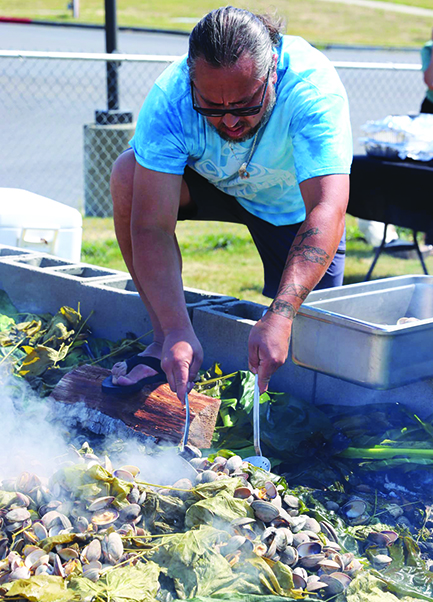
The annual clambake is a joint event hosted by both TELA and the Lushootseed department. Over the years, the two departments have forged a strong relationship. Working together, they have developed and implemented an immersion program that introduces the ancestral language to tribal members at a young age, during the critical era of a child’s brain development. Each school day, Lushootseed language warriors visit the academy’s classrooms to impart traditional words, phrases, songs, and stories to the kids, ensuring that the language revitalization continues to thrive generations from now.
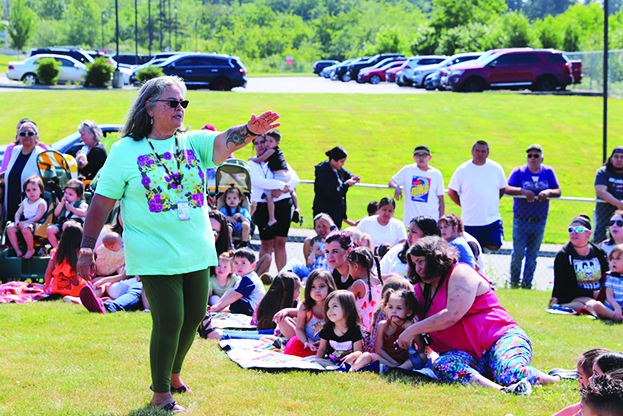
Ray, who passed the cooking techniques down to Thomas and Andy, spoke to the kids about the importance of sharing Tulalip’s teachings with the next generation, so the tribe’s lifeways are carried on into the future.
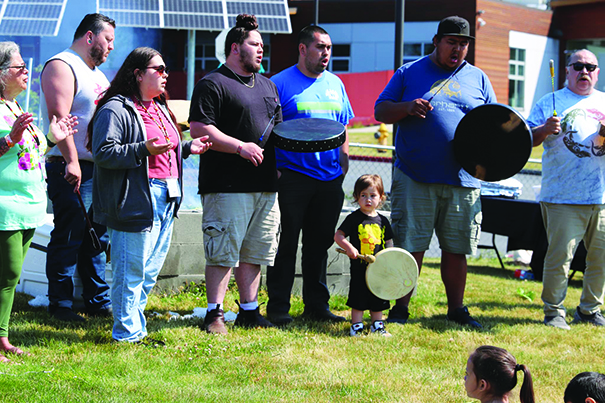
Said Ray, “My nephews are going to share with you the way we used to cook. This is called steaming. This is something that belongs to us. We must never forget those ways that were given to us. The way we lived a long time ago, and the way we prepare and cook our foods.”
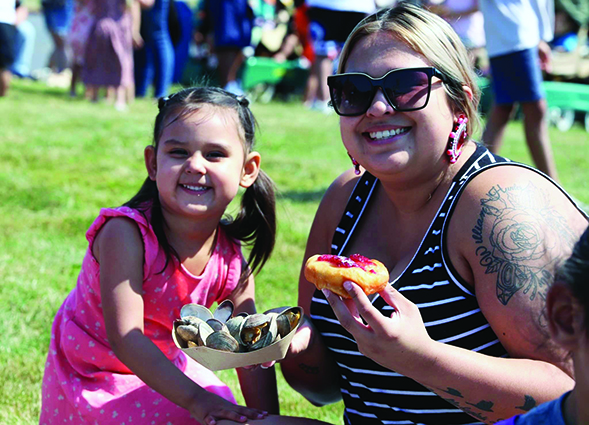
While the clams continued to bake, Ray called upon his family to share a song. Many TELA students joined in by either drumming and singing or dancing alongside their friends and teachers. Following the song, Lushootseed Language Warrior, Lois Landgrebe, drew the attention of the kiddos by sharing a traditional and interactive story about clams and their importance to the Tulalip people.
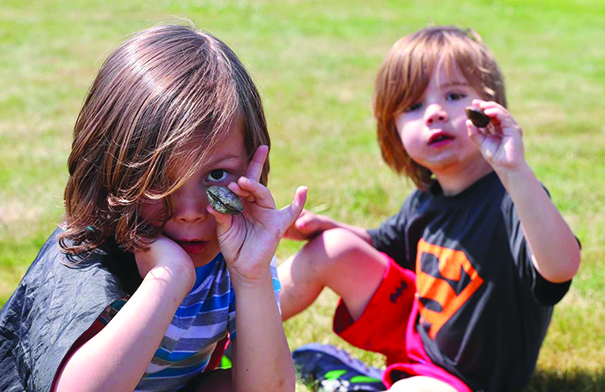
As soon as the clams were ready, they were uncovered and scooped out of the pit. Each student received their own tray of clams, which was accompanied by frybread, and they grubbed down on the shellfish with their peers, teachers, and families.
The kiddos were not only excited to eat the delectable and traditional food, but also found amusement in the shells by opening and closing them to make it appear as if the clams were talking.
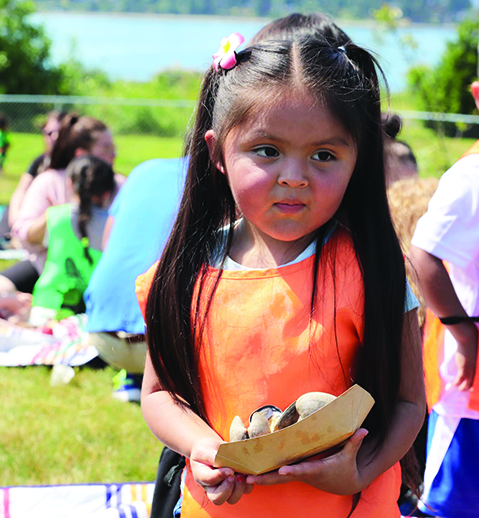
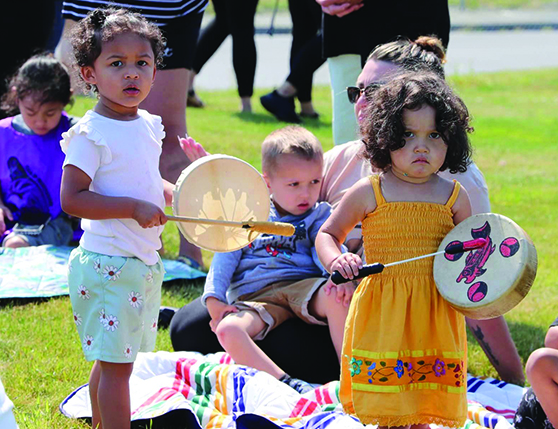
Before dashing off to the serving station to request seconds, a young student exclaimed, “The clams are so yummy, I already ate all mine. I need more!”
“It’s so beautiful, and it’s the cutest thing,” shared Sheryl when watching the students enjoy their clams. “Some of them have never seen this before or had clams prepared this way. Because they are being exposed to this now, they are going to grow up knowing that this is our way and know that this is where they come from. You could see the joy on their faces. We had over 100 kids out here singing and enjoying the day. Hearing the whole school singing songs that they’re learning from Lushootseed was amazing. When the kids are doing these traditional things, they are learning how to be.”